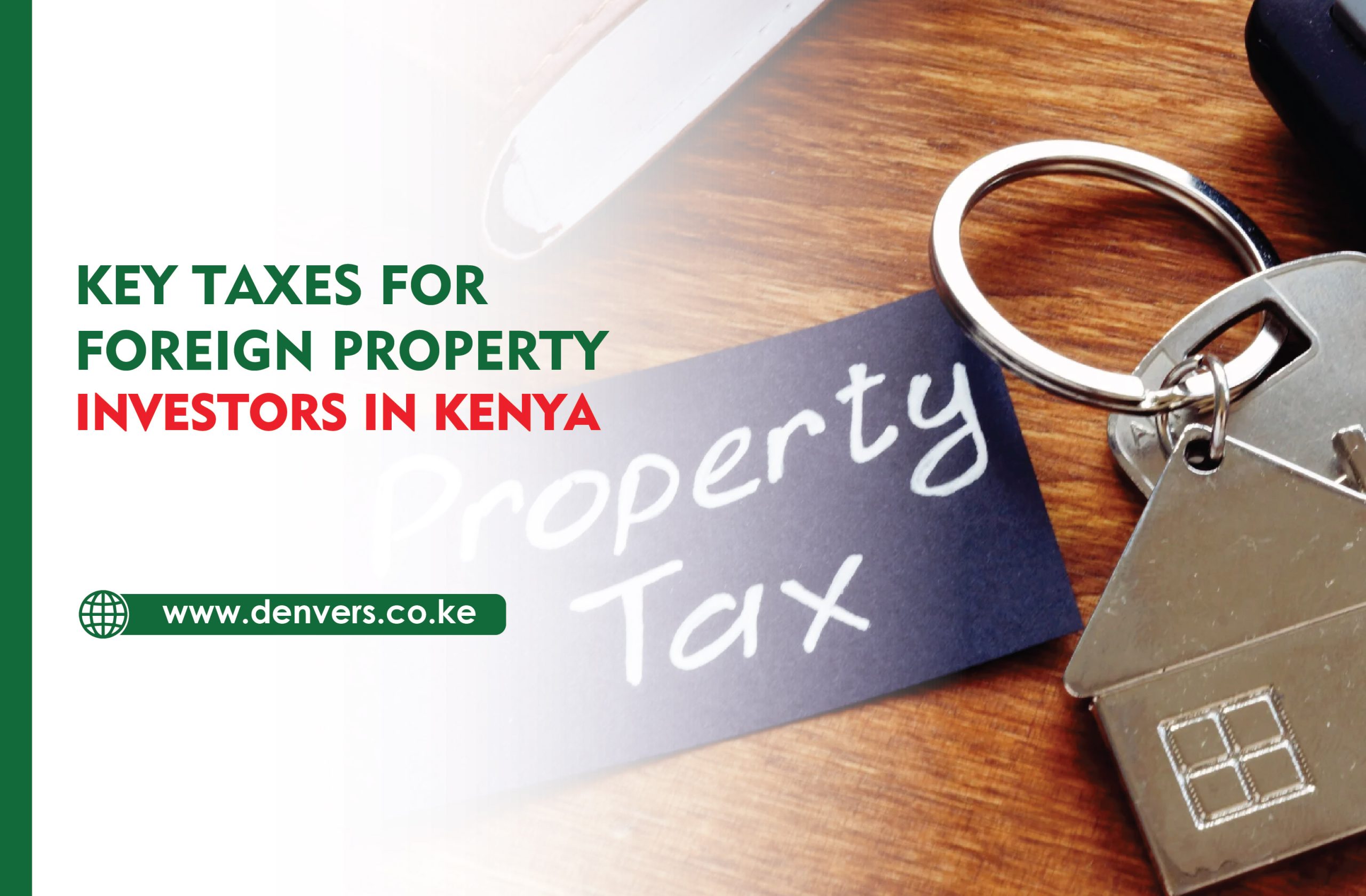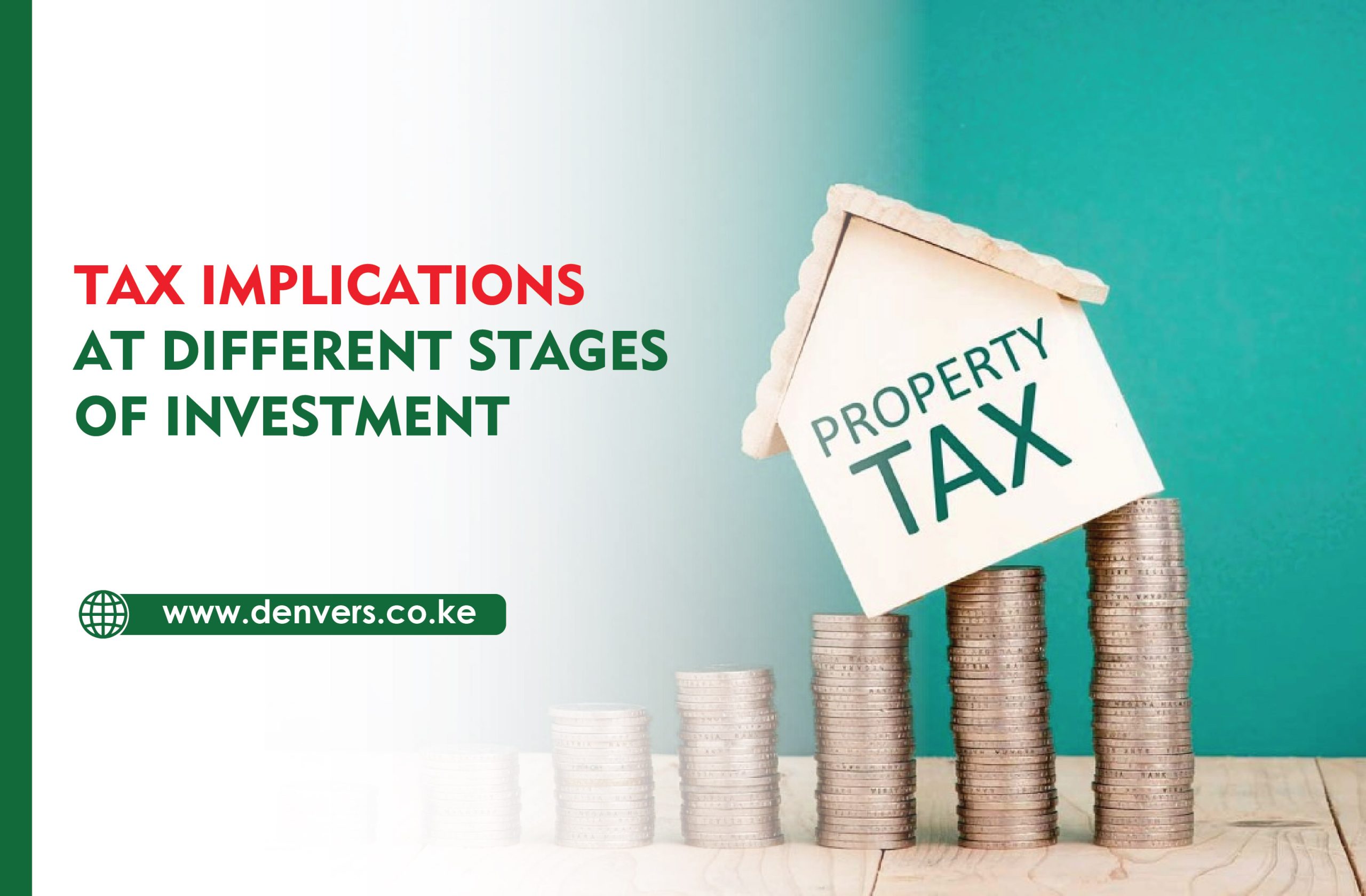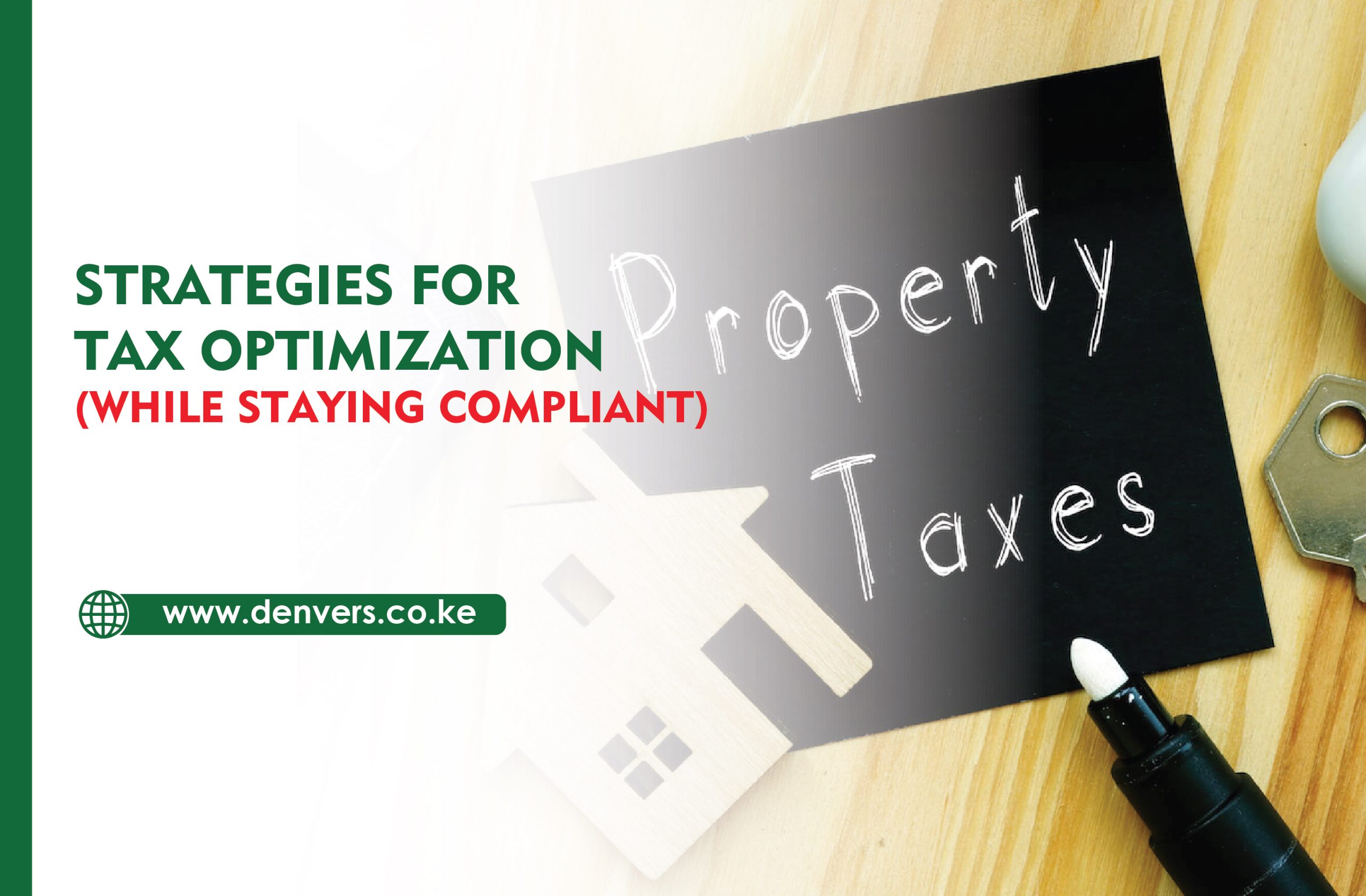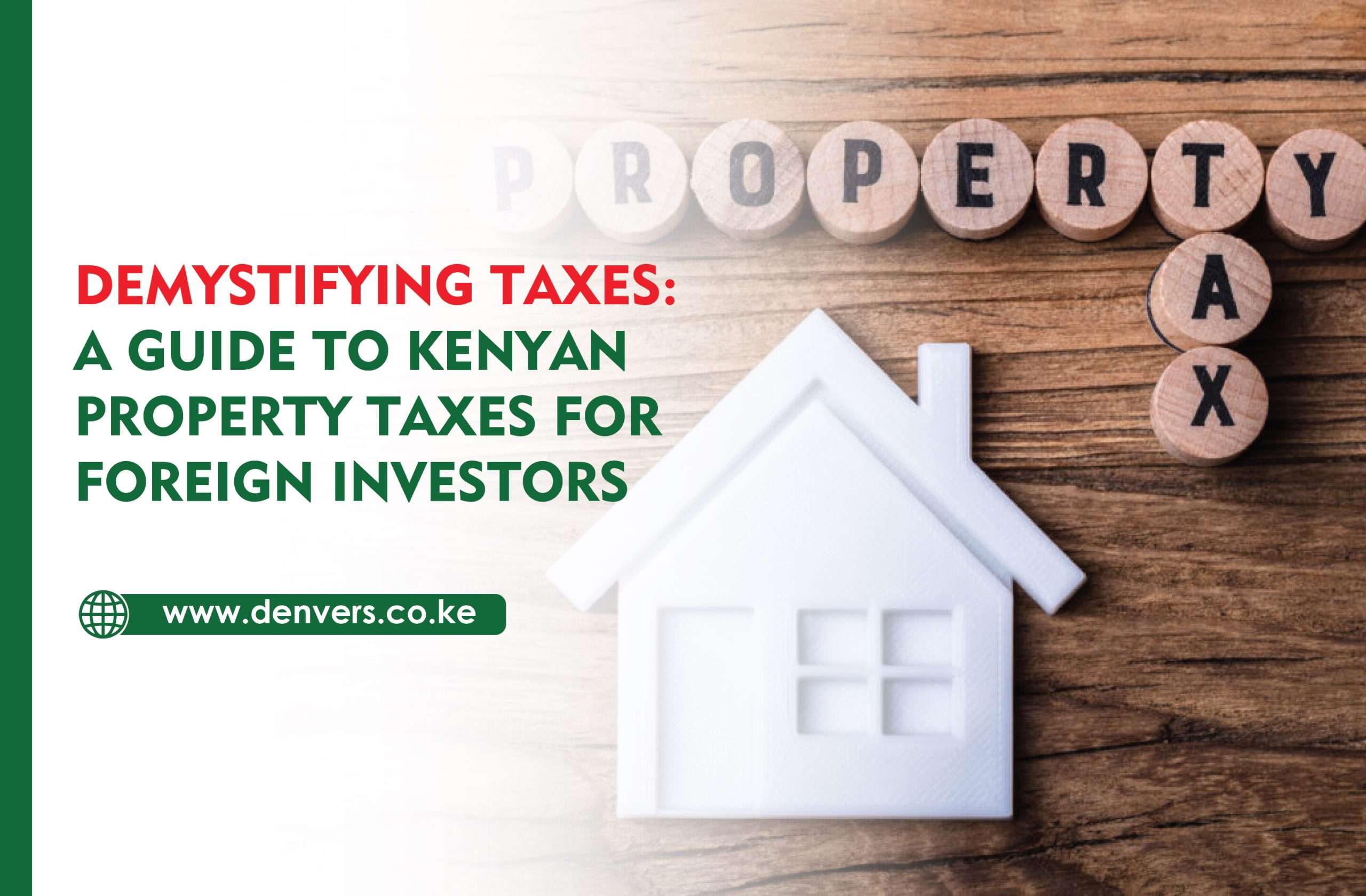A Guide to Kenyan Property Taxes for Foreign Investors
Kenya’s thriving property market beckons foreign investors with its growth potential and diverse investment options. However, navigating the tax landscape can be a daunting task. Understanding Kenyan property taxes for foreigners is crucial for making informed investment decisions. This blog delves into the different types of taxes levied on foreign property ownership in Kenya, explores tax implications at various stages of investment, and equips you with valuable knowledge for a smooth property ownership journey.
Key Taxes for Foreign Property Investors in Kenya

Foreign property investors in Kenya encounter several tax considerations:
- Stamp Duty: Payable upon property purchase, stamp duty is a one-time tax levied on the property’s assessed value. The rate varies depending on the property’s location:
- 4%: Applicable to properties within municipalities.
- 2%: Charged for properties situated outside municipalities.
- Capital Gains Tax (CGT): This tax applies when you dispose of your Kenyan property, generating a profit (capital gain). The capital gain is calculated by subtracting the acquisition cost (including purchase price and incidental costs) from the sale proceeds. Currently, a flat rate of 15% is levied on the net capital gain.
- Income Tax: If you generate rental income from your Kenyan property, it is considered taxable income in Kenya. The applicable income tax rate depends on the total amount of your Kenyan income, including rental income. Foreign investors with no other Kenyan source of income may be subject to a flat withholding tax rate of 30%.
Tax Exemptions: There are limited exemptions available for foreign investors. For instance, some bilateral tax treaties between Kenya and other countries may offer reduced withholding tax rates on rental income. Consulting a tax professional to explore potential exemptions based on your specific circumstances is highly recommended.
Tax Implications at Different Stages of Investment

Understanding tax implications throughout the investment lifecycle is crucial:
- Property Purchase: Factor in stamp duty when calculating the total acquisition cost of the property.
- Property Ownership: Consider ongoing annual land rates or ground rent payable to the local authorities. These vary depending on the property location and size.
- Property Rental: Be aware of your income tax obligations if you plan to rent out your property. Explore potential tax treaties and consult a tax professional for guidance on filing tax returns and paying rental income tax.
- Property Sale: When selling your property, remember capital gains tax will be levied on any profits earned.
Strategies for Tax Optimization (While Staying Compliant)

While tax minimization is a natural consideration, prioritizing tax compliance is paramount. Here are some strategies to navigate the Kenyan property tax system effectively:
- Seek Professional Tax Advice: Consulting a Kenyan tax professional specializing in foreign investment can provide personalized guidance on tax obligations and potential optimization strategies.
- Maintain Detailed Records: Keep meticulous records of property purchase costs, renovation expenses, rental income, and relevant receipts. These records are crucial for calculating capital gains tax and accurately reporting rental income for tax purposes.
- Explore Tax Treaties: Research any applicable tax treaties between your home country and Kenya. These treaties may offer reduced tax rates or other benefits for foreign investors.
- Consider Legal Structures: Depending on your investment goals and risk tolerance, explore different legal structures for holding your Kenyan property, such as a limited liability company (LLC). A tax professional can advise on the most suitable structure for your specific situation.
Understanding Kenyan property taxes for foreigners empowers you to make informed investment decisions. By familiarizing yourself with the different tax types, their implications at various stages of investment, and employing effective strategies, you can navigate the Kenyan property tax landscape with confidence. Remember, seeking professional tax advice is key to ensuring compliance and potentially optimizing your tax burden. With the right knowledge and guidance, Kenyan property ownership can be a rewarding investment experience.







